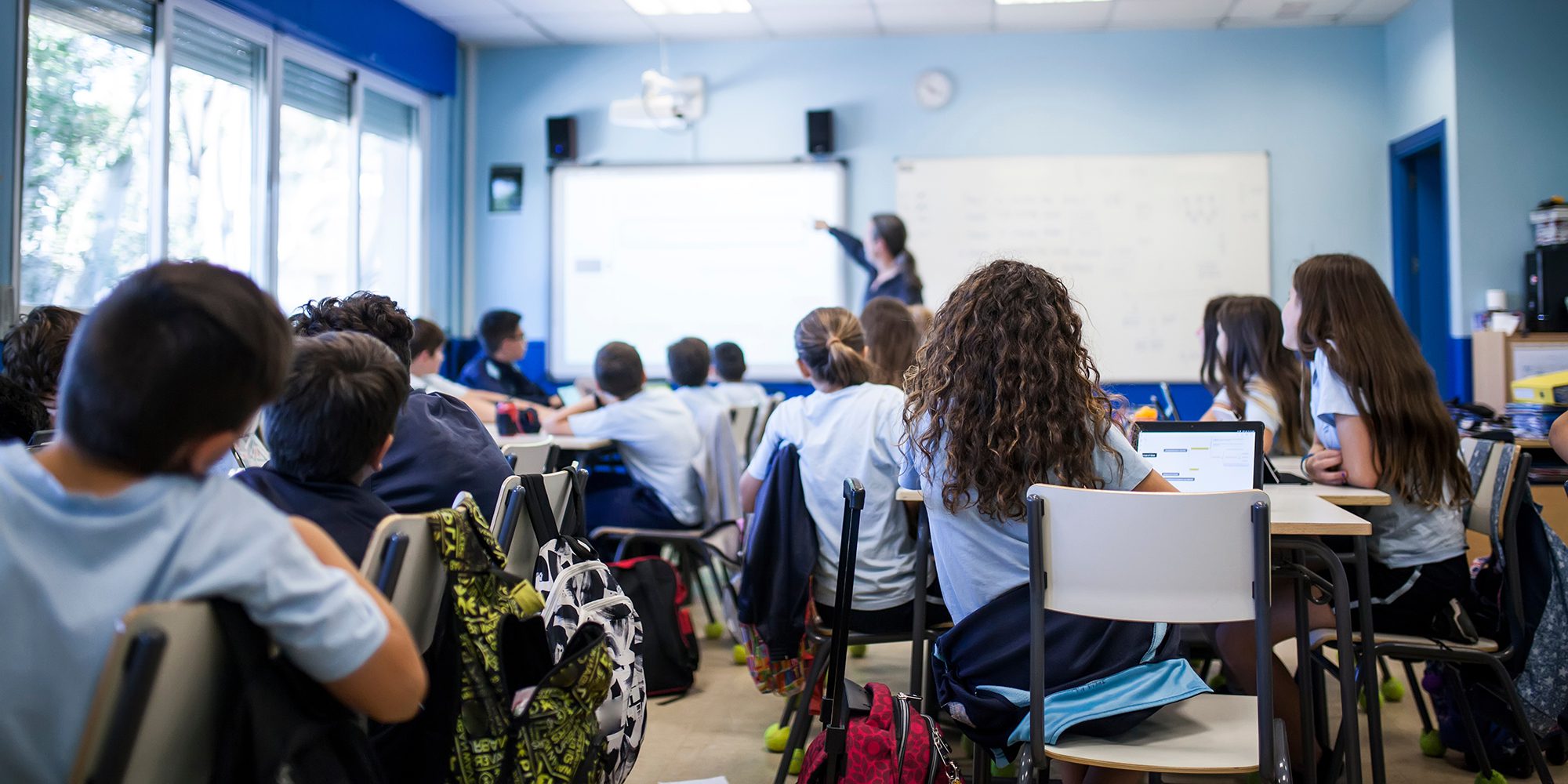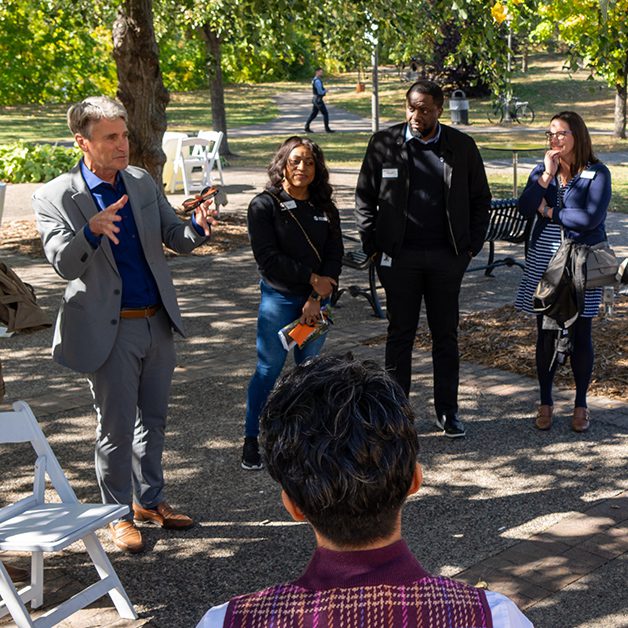Helping New Immigrants Thrive in Minnesota

By Joel Luedtke
Anyone who spends a lot of time in Minneapolis public schools—as I get to do as part of my job—will have noticed an important difference over the past year: There are more immigrant children in many schools. Beyond this recent change, I’ve also learned that many of these new students will spend years in these schools while their immigration status is worked out in an overwhelmed court system.
Regardless of your views on the wedge political issues around immigration, a few facts should unite us all: These children are wonderful humans who already have hopes and dreams that we should help flourish. And during what will be an uncertain time for these families, our schools should be a place where they can feel at home. This last part is already happening, thanks to the great people who work in Minneapolis schools. But there are more things the rest of us can do to help.
One place where you can see these demographic changes is an elementary school in North Minneapolis that I visit periodically for work. The school began the 2023-2024 school year with about 240 learners, less than 15 percent of whom identified as Hispanic or Latino. By the end of the year, 60 new Spanish-speaking students had enrolled, increasing the percentage of Hispanic/Latino students to 25 percent.
Most of these young learners recently crossed the United States’ southern border with their families and made their way, sometimes directly and other times circuitously, to Minnesota. This mirrors a broader trend in Minneapolis, and to a lesser degree in other metro-area districts. Between January 2023 and January 2024, the Minneapolis district added more than 2,500 new Spanish-speaking students, equal to 9 percent of the total enrollment at the start of the 2023-2024 academic year.
This influx of new students from countries like Ecuador and Venezuela into Minneapolis Public Schools, as well as St. Paul and several suburban districts, reveals some of the scale and nature of migration from the southern border to Minnesota. Court filings show a fuller, more complex picture.
Currently, more than 42,000 cases await a decision at Minnesota’s immigration court at Fort Snelling. Most are for people who entered the United States seeking protection from human rights violations and are now on a procedural conveyor belt heading towards deportation. One way to get off that belt is to win political asylum. Nearly 13,000 of Minnesota’s backlogged cases are applications for political asylum. Local immigration lawyers expect many more asylum applications to be added in coming months as new arrivals secure legal help and file their paperwork.
Historically, the Minnesota Immigration Court approves about one third of asylum applications. But if we take the reality of a major backlog in immigration cases back to our school in North Minneapolis, it’s easy to start imagining the journey these children are on. It will take years for the immigration cases of its students to be adjudicated. Many current kindergarteners may enter middle school before their asylum cases are decided.
Whatever we may feel about the situation at the southern border, don’t we want these students and their families to live full, productive lives in our communities? We have room in our schools, which have seen an enrollment decline of around 2 percent statewide since 2019. We also have room for their parents in our workforce. Minnesota has two jobs for every jobseeker and an overall unemployment rate under 3 percent. (Asylum-seekers can work legally while they wait for their case to be processed).
Under the current rules, and with some community support, these kids have a good chance of thriving as they grow up in Minnesota.
Here are three things you can do to support the continued integration of immigrants in Minnesota:
Ask your legislators to support the North Star Act in 2025. Regardless of their immigration status, students should be able to attend school, sick folks should seek medical care, and anyone needing help should be comfortable reaching out to the police or other emergency services. The North Star Act would ensure that schools, hospitals and local law enforcement can’t be deputized as immigration agents and can focus on their core public service work. The Minneapolis Foundation advocated for passage of the North Star Act this year, and we encourage Minnesotans to add their support to help get it passed next year. Learn more.
Support organizations providing legal representation to immigrants. Unlike in criminal proceedings, immigrants have no right to legal counsel in immigration court. They either hire an attorney, represent themselves, or find pro bono help. Currently, fewer than half of immigrants have legal representation. Here are two organizations providing pro bono help to asylum seekers:
Help newcomers get on their feet. After nearly 250 years of immigration, we can safely say it is a net boon for the country. Yet the first years in America can be hard. Here are some organizations providing direct aid to new Minnesotans:
- Support for students: Assistance League of Minneapolis
- English classes, food, and more: CLUES (Communidades Latinas Unidos En Servicio)
- Community organizing and advocacy: COPAL (Comunidades Organizando Poder Y La Acción Latina)
At the Northside school, the principal wasn’t ready for a massive increase in her Spanish-speaking student population. At times, she felt overwhelmed by their educational and personal needs. But she adapted, found resources, and built trust. The Assistance League stepped up with winter coats. Bus drivers figured out a new system to help students know which stop was theirs. New bilingual staff helped everything run more smoothly. Today she’s proud of the community her staff is building with these new students and their families, and she is seizing the opportunity to grow her school to better support all its learners.
Isn’t this an apt analogy for our whole country as we debate our role during a period of change? Immigration is a real challenge, but one we’ve managed time and time again. On the other side of this stressful moment is a growing, vibrant, and thriving community.
—
Joel Luedtke is a Program Director for Education at the Minneapolis Foundation.

